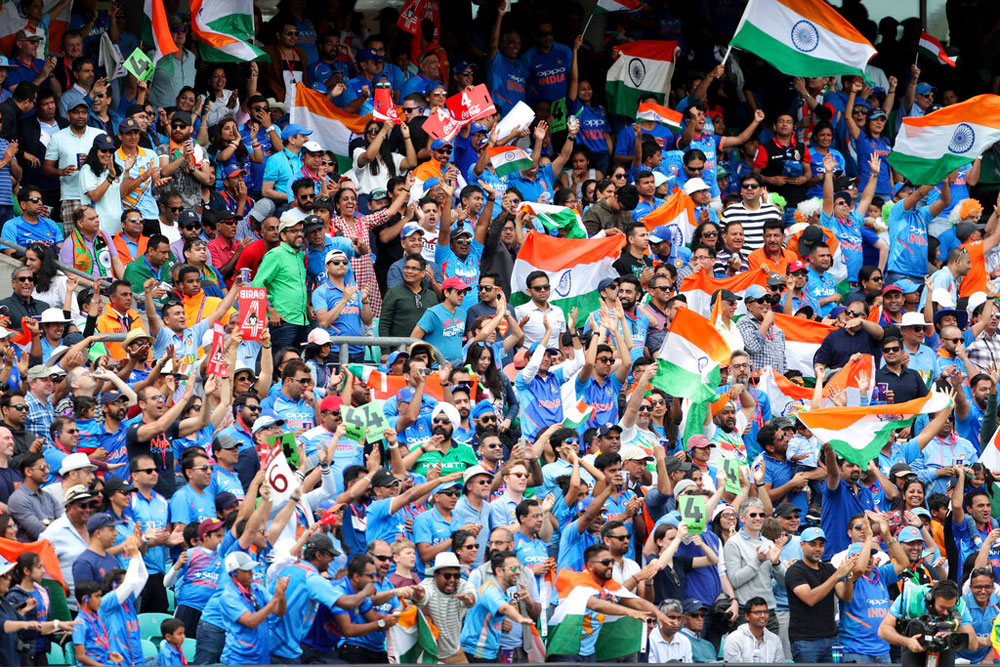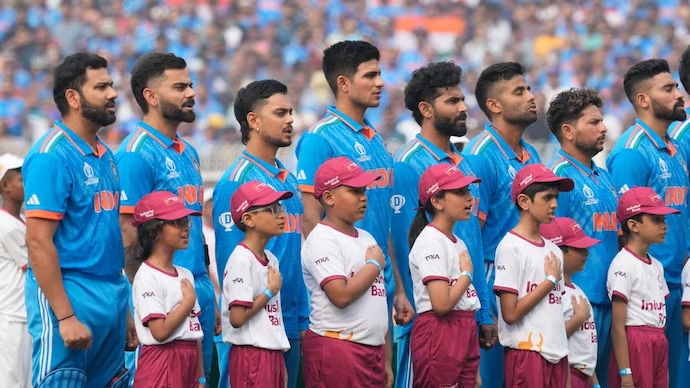Sports & National Identity: Uniting Or Dividing Nations?

Fans celebrate a boundary by Hardik Pandya during the match with Australia at The Oval in London on June 9, 2019. Between Tebbit’s traitors and Bharat Army tourists, every match India plays in England feels like a home game (Telegraph India)
Sports possess a unique capacity to shape national identity, offering a platform for unity and pride while occasionally highlighting societal divisions. This dual role is evident globally, from cricket in India to football in Europe. Examining these dynamics helps us understand how sports influence national cohesion and discord.
Cricket in India: Unity and Division
Cricket as a Unifying Force
In India, cricket is pivotal in shaping national identity. Cricket serves as a powerful unifying force, transcending the country’s vast cultural and linguistic diversity. Major cricket victories, such as the 1983 and 2011 World Cup wins, are celebrated nationwide, fostering a collective sense of pride and achievement. These moments demonstrate the potential of sports to unite a diverse population under a common banner.

Indian team sings the national anthem during World Cup 2023
Source: India Today Sports Desk
The Impact of the Indian Premier League (IPL)
The Indian Premier League (IPL) further cements cricket’s dominance by bringing together fans from different states to support their favorite teams and players. The league’s success has created a platform where regional and national identities intersect, promoting unity through shared passion. However, this intense focus on cricket sometimes overshadows other sports, leading to disparities in support and development.
Despite its unifying potential, cricket can also highlight regional divisions. The fierce rivalries in the IPL, such as those between Mumbai Indians and Chennai Super Kings, often bring regional loyalties to the forefront. While these rivalries enhance the sport’s entertainment value, they can also foster a sense of regionalism that sometimes overshadows national unity.
The Olympics and National Identity
National Pride and Disparities
The Olympics represent a critical arena where sports influence national identity. For many countries, the performance of their athletes on the global stage is a source of immense national pride. India’s recent successes in the Olympics, including Neeraj Chopra’s gold medal in javelin at the Tokyo 2020 Games, have sparked nationwide celebrations, fostering a sense of collective achievement. However, the event can sometimes bring to light disparities in resource allocation and support for different sports. In India, the focus on cricket has often led to other sports receiving less attention and funding, impacting their development and international performance.
The Global Influence of Football
The FIFA World Cup
Globally, football is the most popular sport and significantly shapes national identities. The FIFA World Cup is a prime example, bringing together nations in a shared celebration of the sport. The tournament fosters global unity and mutual respect, as seen when fans from diverse backgrounds come together to support their teams.
Club Football Rivalries
Club football can be divisive. Fierce rivalries between clubs often reflect deeper social, political, and regional tensions. Matches like El Clásico between Barcelona and Real Madrid go beyond sport, embodying the political and cultural rivalry between Catalonia and the rest of Spain. Similarly, the intense competition between clubs like Boca Juniors and River Plate in Argentina can sometimes lead to violence, highlighting underlying social divides. These rivalries, while enriching the sport’s cultural tapestry, can also exacerbate divisions and provoke conflict among fan bases.
Rugby's Role in National Unity
The 1995 Rugby World Cup
The Rugby World Cup in 1995, hosted and won by South Africa, is a powerful example of sports fostering national unity. Nelson Mandela’s support for the Springboks, a team previously associated with white South African identity, was a significant step towards national reconciliation. Mandela’s gesture of wearing the Springbok jersey during the final highlighted the unifying power of sports in bridging deep-seated divisions.
Conclusion
Sports play a profound role in shaping national identity, serving both to unite and divide. In India, cricket has largely been a unifying force, while also occasionally highlighting regional disparities. Globally, football and other major sports events like the Olympics and Rugby World Cup demonstrate the dual potential of sports to foster unity and highlight divisions. The challenge lies in harnessing the unifying power of sports to build inclusive national identities while addressing the underlying issues that contribute to division. By doing so, nations can celebrate their diversity while forging a stronger, collective identity through the love of sports.

